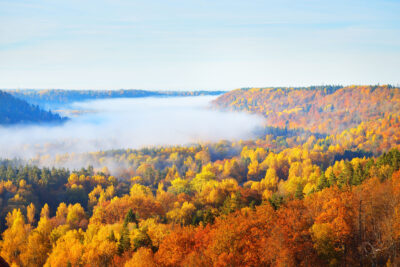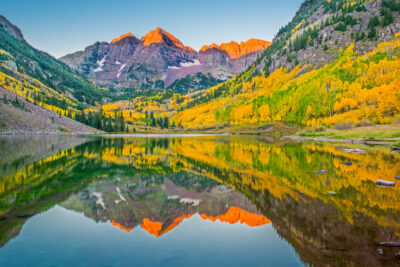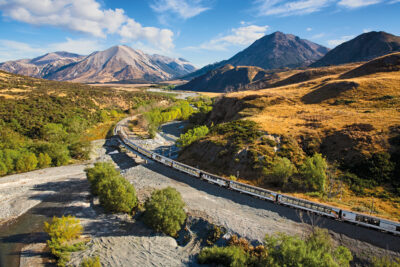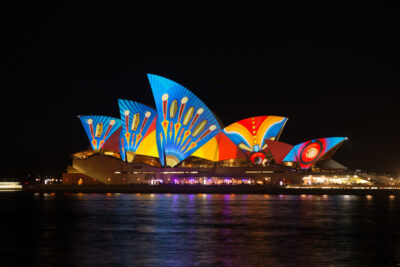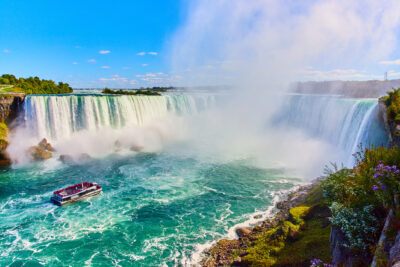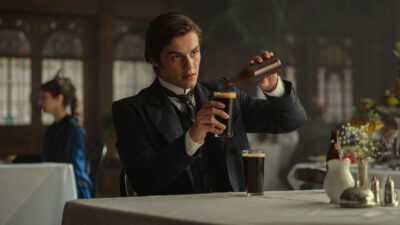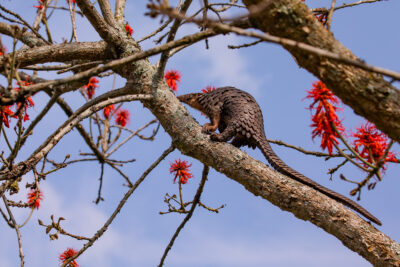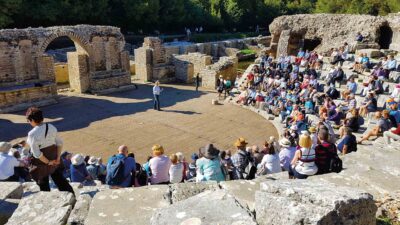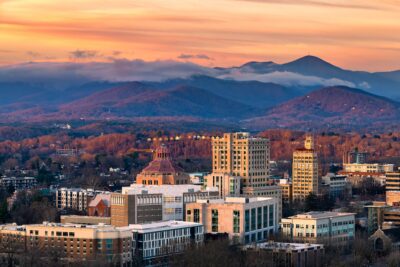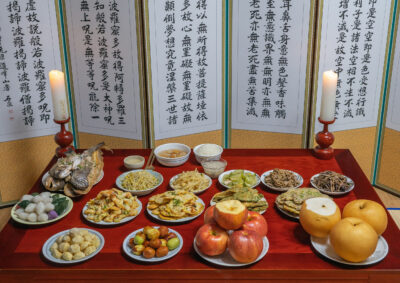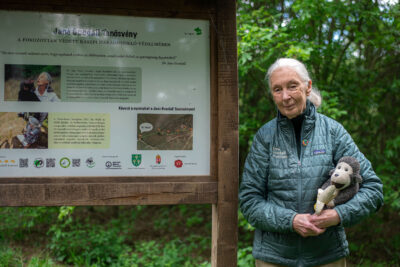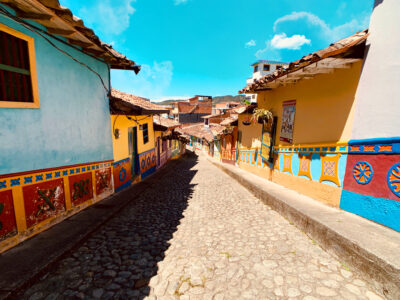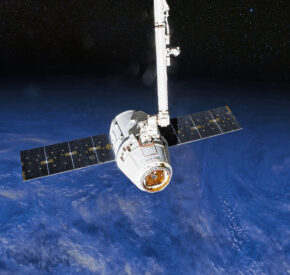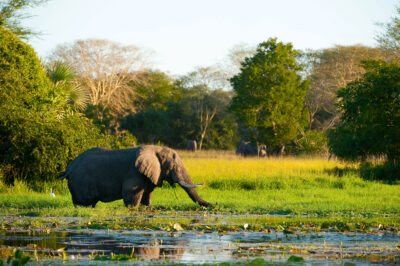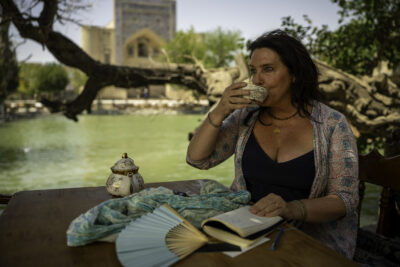
Interview
Bettany Hughes on Treasures of the World series four
The TV historian talks Stone Age parties, bat poo cave art and being the alternative to Strictly Come Dancing
Yet again, Treasures is back and at prime time on Saturdays. It is clearly the antidote to game shows!
We are so thrilled, and Ruth, who’s our brilliant director of production, worked out that by the end of this series, we’ll have been on prime time Saturday night television for a quarter of the year in the UK with this series and the other ones. So, all those doomsayers who said nobody cares about history, nobody wants to have their minds opened with travel, they’re all wrong! People really, really, really do.
We’re really thrilled, because it’s getting new archaeology, slightly unexpected places out there to people.
The first show is in Croatia, and basically, it explores a different bit of what it is to be human. It’s kind of why we love ritual, why we have parties and rituals to bind us together, through time.
And so really fascinating. So, I go diving with these amazing underwater archaeologists to look at this Stone Age island, a fake island that they built in the sea. In the Stone Age! And it looked like they’re having a real party life there, because there are almonds and olive oil, and this is in the Stone Age. And just obviously living the good life, basically. We get to it by diving under the water with these amazing underwater archaeologists.
And then I do the same in Split itself, when I go underneath Diocletian’s Palace into the furnace room of his private bath. So, if you imagine they all have saunas, Roman baths, and they’re all powered by these massive furnaces. So, through these archaeologists, I get access to go down into the room that was the furnace, and it’s really cool, because you’re just sort of imagining what these incredible people were doing, either centuries ago or thousands of years ago, in the case of the Stone Age.
So, yes, it’s really hopeful and joyful, the fact that people want to watch this on a Saturday night. I mean, I’ve got nothing against Strictly, but it’s nice to have an alternative, isn’t it?
You’ve got so much passion in your voice, and I think in these shows, you bring history to life in a way that we never got at school. Do you still have surprises yourself?
Yeah! We plan our shoots, and there are always surprises on them. Sometimes unexpected ones like us getting stuck in storms or that kind of thing. But the really happy surprises are in the number of people who will hear we’re town and will try to give us something which other people don’t see.
I’m not faking it when I’m looking astonished on telly. You’ll see in the Switzerland episode, we were staying in St. Bernard’s Pass, and I just got chatting to the monks over raclette in the evening. One of them turned out to be a massive history geek, and then it turned out he’s got a whole archive with ancient Egyptian shabtis and heads of the God of Mars, and little Zeuses with his thunderbolt, in this little room in the monastery. So all of that is just heaven. I absolutely love it, and I love the fact that by getting that access, we can share stuff that people would never, ever get to see except through these documentaries.
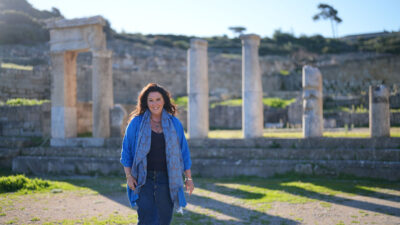
You’ve mentioned Croatia already, which is the opening episode. Do you want to give us a very quick overview of the other destinations you visit?
So, it’s Croatia, Uzbekistan, which was just incredible; Bulgaria; Rhodes, where, again, we gain access to a brand-new archaeological dig; Switzerland; Estonia; and Oman.
We hope they’re going to really cheer people up, because they’re going out as the nights are drawing in in the UK, and then they will show in 120 countries around the world.
We filmed in Rhodes in winter to prove that you can go to these destinations out of season, so we were there in February, some of the most beautiful light I’ve ever seen on film. I mean, it was just incredible. And then for the final programmes, we thought we’d have a sort of semi-Christmas theme, so Oman, for instance, is obviously the land of gold, frankincense, and myrrh, traded by those Nabataean traders.
We follow the story of somebody called the Desert Lord, who was buried in the desert with his two camels which were actually sacrificed and buried with him. And he was obviously a kind of fighter and trader but bringing all those things that we associate with Christmas time, gold, frankincense, and myrrh, across the deserts.
And then in Estonia, we actually filmed it this time last year when we went to the Estonian Orthodox Christmas and you see what that world’s like with the Seto people right on the Russian border.
We’re hopefully bringing people a bit of winter sun, literally winter sun, and then again, just trying to dive a bit deeper into the stories that surround us in all our everyday lives, and find their roots in these other places.
Yes, one of the striking things about the series is it’s not just about archaeological sites, it’s not just about artifacts. You bring the people to life, the food, the whole culture. Is that intentional?
Well, I only travel if I understand and remember that I’m a guest in someone else’s country. You would never ignore your host, that would be an incredibly rude thing to do. So, connecting is important, and also just in real terms, we’re often really off the beaten track, and so we are relying on the hospitality of others. It might be a desert yurt camp in Uzbekistan, or we’re right on the borders of Afghanistan at one point. So, we had to get the trust of the people whose lands we’re travelling through. And they’re really interested in what we’re doing, so it ends up being an incredibly positive experience.
We’re showing on camera what is actually happening behind the camera – so, us being invited into houses, being given a tent for the night, making new friends. We thought it’s worth people seeing the reality of doing this travel and archaeology show.
I fell in love with everybody we met on the shoot. The world is going through quite tough times now, and so I think people really value friendship and trust when they have the chance to give it.
When you meet the people, you also bring out echoes of the people of the past.
We found that in Uzbekistan massively, and I’d love people to hear about that. In order to be at the centre of the Grand Silk Road, through thousands of years, you’ve had to get on with everybody. You’ve had these strangers traveling through your land, so you had to accept them and work out what makes them tick. And we were overwhelmed with hospitality in Uzbekistan. I just sat on the bullet train, and immediately this couple insisted on buying me chocolate ice cream, and we had a chat about them having the Sogdian ancient trading instinct in their blood.
And in a remote mountain pass, a lovely woman forced slash encouraged me to eat her hard fermented mare’s milk cheese balls. In Uzbekistan, there was hospitality to the power of X. I was blown away by the sense that people felt it was their duty to make sure we were okay, and to welcome us, so that’s definitely a characteristic of that part of the world that survived across thousands of years from the time of the beginnings of the Grand Silk Road.
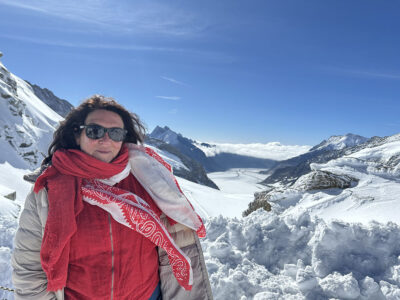
The list of destinations you visit is all incredibly exciting, but I wasn’t really expecting Switzerland!
I know! Well, that’s what we thought, because when you say Switzerland, people think of cheese and cows and skiing. Nobody thinks about the Romans. The Romans were in Switzerland, and nobody talks about that, but we find all this amazing evidence of Roman activity. On the Jungfraujoch glacier, just close to there, they’ve discovered these really astonishing 4,800-year-old remains.
They haven’t found the body yet, but they found all of his clothes, his leather trousers made of a kind of goat that’s now extinct. And beautiful bows in a beautiful silver birch bow case that has been perfectly preserved in the ice. And he was travelling, so again, we were making that point that people, even in those most extreme parts of the world, 4,800 years ago, 200 years before the pyramids were built, there was some brave guy who put on his goatskin leather trousers, and crossed the glacier, because we wanted to connect. That’s what we want to do as a species. So… so yes, we thought we’d give people a bit of surprise with Switzerland.
Let’s just talk a bit about the Rhodes one, because the thing that really stood out about it was the multiculturalism of the island.
Definitely. It’s an island that’s not isolated. I feel it’s very multicultural, and there are incredibly moving stories about the Jewish community who were taken [in World War II], and most of them were killed, but it was a Turkish Muslim Consul General who managed to save some of the families. That’s because it’s an island where everybody has lived together, Christians, Jews, Muslims, for centuries, probably for 2,000 years. You shouldn’t just think of a stereotypical Greek island; you really get that sense of it being where East meets West.
And because of that, the Romans always used people trained on Rhodes as negotiators and diplomats, because they were so used to understanding different points of view and different worldviews. So, the people from Rhodes were sent right across the Roman Empire, which is amazing, isn’t it?
So we were just making that point that islands don’t need to be isolated. It was a really interesting show to do, and again, lots of new archaeology there. We drank a lot of wine on that shoot and I love the fact that the wine of Rhodes ended up in Rome, and as far away as Britain, and in Alexandria, Egypt.
There were surprises in Bulgaria too…
Bulgaria is a really cool place. And there were these incredible Magura caves, where the story goes back 8,000 years. And they’ve decorated the caves with all these wild scenes, sort of fantasy scenes of men getting erections and women dancing, and it’s all painted with bat poo.
I suddenly realised I’m standing on two metres of bat poo, which is what they’re using as the paint. So, there are definitely some surprises.
To finish off, then, a really unfair question. If somebody’s so busy, they think they can only watch one episode, which one would you absolutely say, this is the one to watch?
It is unfair, but I would say Uzbekistan will blow your mind. You know, it’s the most epic landscape, astonishing archaeology, astonishing history, beautiful people. So, yes, watch Uzbekistan.
Bettany Hughes’ Treasure of the World will air on Channel 4 on Saturdays at 7pm.
